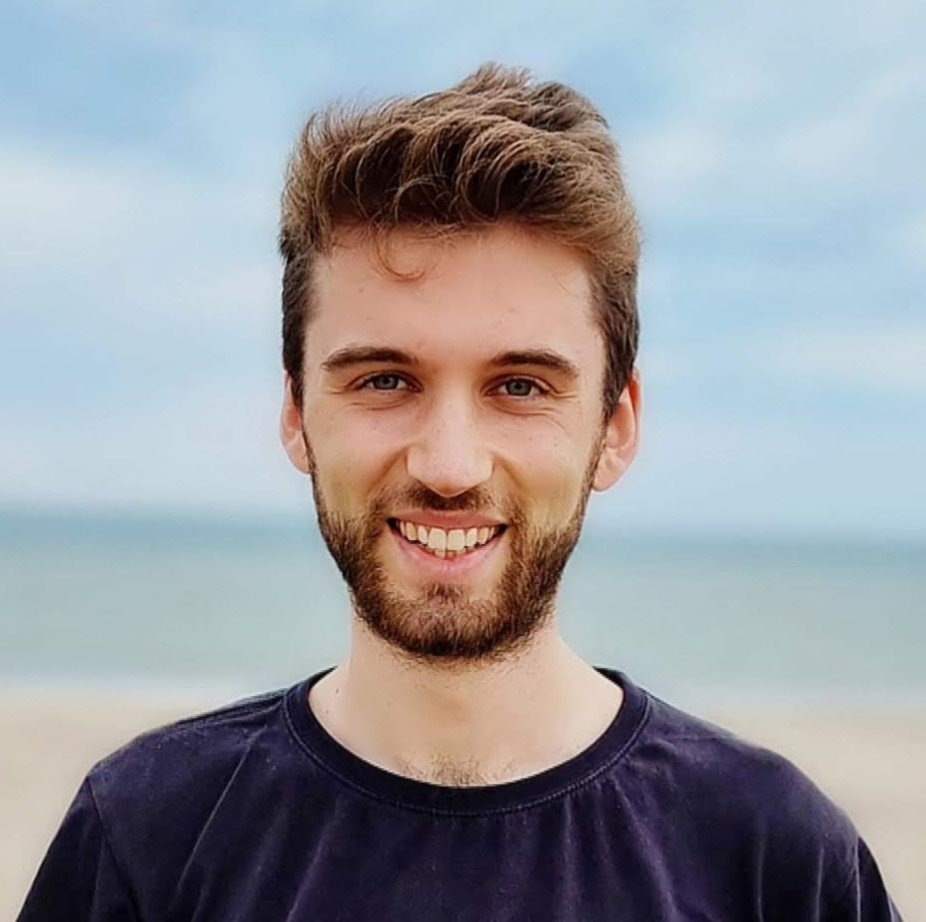
Who we are
We are a globally distributed team, working together to nurture the capacities and capabilities needed for planetary-scale governance.
We come from a range of disciplines and bring a diversity of experiences to this work. If you are interested in joining one of our groups then please get in touch.

Steering Group
Indy Johar
Indy (he/him) is a co-Founder and Director of 00 and Dark Matter Laboratories. Indy is an architect by training and a maker by practice and he is a Senior Innovation Associate with The Young Foundation. He, amongst other organisations, co-founded Impact Hub Birmingham and Open Systems Lab, was a member of the RSA’s Inclusive Growth Commission and a good growth advisor to the Mayor of London. He is an explorative practitioner in the means of system change and the dark matter design of civic infrastructure finance, outcomes, and governance.
-
It is becoming increasingly clear that the scale of the challenge we face requires us to make deep transformational changes on a planetary scale. The new planetary scale innovations are going to be vital in making a just transition. Foundations Earth is a unique place to advance both the planetary and relational transformation necessary.
Jess Hines
Jess is founder and producer at Fingerprint Content - a production company with a clear and urgent mission: to spark change in the way we portray social issues on screen. It empowers the world's most exciting storytellers to bring their deeply-held passions to life; exploring inequality, race and gender, the power of big business, and, most particularly, climate change, where we encounter all these issues. As an expert in the overlap between politics, action and entertainment, she has led creative projects on climate change, renewable energy, air pollution and fake news in the UK, USA and India. Her passion is in finding ways of using culture to create access to new audiences.
-
If we want to build a better world we need to be able to see it first. To do that we need to dream it real, humbly taking found pieces of worlds that once were and fusing them with new ideas and understandings. We need to celebrate the words captured from our ancestors and borrowed from our descendents. We need to engage all of us to paint, sing, film, write, dance and speak of where we know we can get to. We need to forge the new myths that will lead us through, allowing the creation of a space that helps all to ground themselves in these possible potentials over and over again, until we are able to live them, and then, dream anew.
Rebecca (Grace) Rachmany
Rebecca (Grace) Rachmany (she/her) is one of the leaders in the areas of tokenomics, blockchain governance and distributed technology. She is a DAO (Decentralised Autonomous Organisation) governance consultant with expertise in the practicalities of how to lead a decentralised / distributed organisaztion, and brings 25 years of hands-on management of teams and cross-team cooperation. She is also the founder of Voice of Humanity and Priceless Economics projects. Her current work involves experimentation in infrastructure for human collaboration, governance, living environments, and non-monetary economic systems.
-
Foundations Earth, as the name implies, is involved in the deep thought process around right structuring of the collaborative processes and conversations that bring humanity towards an intelligent adaptive design for planetary and human survival. While many of the projects today are in a hurry to implement their concepts of a better system, Foundations Earth puts assessment and contemplation first, providing the intellectual, spiritual and cultural foundation upon which these myriad of projects make sense as a coalescence of human innovation. In short, Foundations Earth represents the wisdom and thoughtful consideration required for addressing the metacrisis and salvaging the planet.
Shikhar Igarwal
Shikhar (he / they), who likes the labels poet, facilitator and friend, grew up in different parts of India and became a scholar of the environmental social sciences at institutions in Singapore and the Netherlands. He contributed to the climate justice movement primarily through Extinction Rebellion - helping to establish chapters in India and the Netherlands, and founding the Global Partnerships Support Group. Having realised a gap within the current paradigm around shared, pragmatic visions of an ecologically regenerative future, he spends his time facilitating space for co-visioning just transformations through GreenCheck - a grassroots climate action support-providing startup, and Kamara - a youth climate movement safety and security project.
-
The greatest tragedy of our times is the sense of helplessness that a majority of humans feel about their lives. Foundations Earth is developing a pioneering transboundary conversation on what it means for communities and individuals to be core contributors to effective decision making about the future of our only and most fundamental shared resource - the Earth and its myriad ecosystems. What makes it idealistic is the inalienable emphasis on authentic co-creation and ubiquitous accountability. What makes it pragmatic is the identification of foundational problems that any human can relate to and expert can contribute to. What makes it pragmatically idealistic is a methodology of engagement that only thrives if actively led by people themselves, well informed and equipped, and makes tangible impact inevitable.
Subham Karchaudhuri
Subham (he/they) is an omni-channel global campaigner, with experience in Global South mobilisation and Global North organisational roles: liaising, storytelling, building capacity and coordinating roles in newly formed teams. Currently, he is involved in implementing strategies for global environmental and social campaigns, facilitating spaces, and supporting public-private policy relations, focusing particularly on research in agriculture and water. Subham is passionate about building people-based movements and campaigns that change culture, perceptions and behaviour, especially with and across diverse communities in both online and offline environments.
-
Contrary to the dominant work culture of the development sector, Foundations Earth allows space for thoughts, wrong decisions and constant learning from repercussions. The work is lean and relevant without the legacy of biases. It is something that will be a norm for society to move to the next level of existence and being.
Tchiyiwe Chihana
Tchiyiwe (she/her) is a Managing Director and television and radio host for African Voices Platform where she specialises in political, economic, environmental and social accountability interviews with politicians, cultural and thought leaders. She is also a Director at Opus Independents - a think and do tank focused on developing upstream solutions to systemic problems - and co-founder of UBI Lab Women where she lobbies for the piloting of Universal Basic Income and explores how it will impact women. Globally, Tchiyiwe serves on the boards of World Basic Income and World Bicycle Relief.
-
Foundations Earth poses one of the most plausible and ambitious endeavours to bring coherence to the tackling of the world’s biggest challenges. It platforms knowledge, solutions and capabilities from anyone moved to save the planet and its inhabitants from the complexities that befall us all.

Service Group
Gijs Spoor
Gijs (he/him) is a co-founder of the Green Silk Road, a platform connecting overland travellers and place-based change-makers across Eurasia. He calls himself a seeker of system change, and this quest led him from working on farming systems with smallholders in India, to value chains with international corporations, to social entrepreneurship ecosystems with impact incubators, to alternative economics with a network called Vikalp Sangam. He is an Ashoka fellow and a resident of the world’s largest international intentional community: Auroville, in South India.
-
This work is important to me because I see no other way to answer our existential questions than through social processes. Dialogue, brainstorming, dance, theatre, play, cooking and eating together, growing gardens, building houses, travelling, these are all avenues for human-to-human connection that can prefigure the kind of world we want to see more of. Deepening and entangling our inquiry is key to avoiding counterproductive interventions. So this work needs to spread and become more popular and visible. There are already amazing entanglers out there, I am keen to get to meet them and learn together.
Jack Becher
Jack (he/they) works across movement and innovation spaces, seeking to catalyse transformations in the ways we organise. Previously Jack has worked across across Europe and globally with various social and environmental movements and research projects, including the Democracy in Europe Movement, Universal Basic Income Lab Network and Extinction Rebellion.
-
This work is important to me because it offers the possibility of addressing not just the symptoms but the root causes of problems that so many of us are trying to solve. By creating spaces that allow us to reflect and make sense of the worlds in which we live, be open to the emergence of new relationships, and care for each other in the face of uncertainty, we create possibilities for building more equitable and regenerative futures.
James Lock
James (he/him) is a co-founder and Managing Director at Opus independents, a for-impact ‘think and do tank’ working in systemic change, culture, politics and media across local, national and international contexts. James works to conceive, support, develop and deliver ‘upstream’ projects which engage with social, economic and environmental entanglements at their root. James has co-authored deliberative and participatory democratic governance models and co-founded citizen-led decentralised global and national movements on Universal Basic Income and Neighbourhood Democracy. He sits on a number of boards including Voluntary Action Sheffield, Independent Media Association and Citizen Network and is a social entrepreneur in residence at Hallam University.
-
We collectively face an unprecedented set of challenges over the next decade. This work is important because it creates the space to name problems better and in so doing opens up a more pragmatic hope for solving them. While this work has a planetary focus it recognises that to solve planetary problems we must resolve barriers to participation at a hyper-local level. It uniquely and bravely explores the emergent complexities involved in cultural outputs, movement building and system innovations coming together to find holistic avenues for change and sensemaking. This work contributes to the conditions required to effectively challenge our existing paradigms, institutions and operating system and to prepare us for the roads ahead.
Lakshmi Venugopal
Lakshmi (she/her) brings her diverse international experience in the environmental field spanning two decades - from activist to project manager, to researcher and facilitator. She believes that the ecological and climate emergency that we face at this moment in history is an opportunity for human beings - as a species - to transform ourselves into an ecological civilisation that honours the Earth and all living beings (including fellow humans). Lakshmi is the founder of the Inner Climate Academy, where she applies her extensive experience as a facilitator of Deep Ecology and the Work That Reconnects to help people rediscover their profound connection to themselves, each other and the Earth. Her research on the concept of eco-civilisation, following the work of Freya Mathews, and her deep inquiry into multi-species learning and co-existence, forms a fertile ground from which the vision for this work can be realised.
Melissa Sikosana
Melissa (she/her) is a biomimicry professional and mentor for Learn Biomimicry - an educational platform that helps innovators and businesses learn from the genius of nature and apply it to global design challenges. She refers to herself as an expert-generalist, using biomimicry and design thinking as a transdisciplinary bridge. Professionally, she has covered topics ranging from nutrient and energy recovery from ‘water carried waste’, to biomimicry design principles for urban planning, as well as the development of socio-technical frameworks for technology dissemination in emerging economies. Melissa is a natural optimist and is excited by an opportunity to co-create functional and simple, socio-technological interventions that improve how people and communities function.
-
The work at Foundations Earth is grounded in fostering a new way of being, one that reconnects us as humans to the other-than-human world around us. Work that encourages us to quieten our cleverness and (re)discover solutions in unexpected places. I am excited by the novelty that will emerge as we continue to play on the edges of systems, ideas, beings and potentialities. As ‘we’ seek to create conditions conducive to life.











